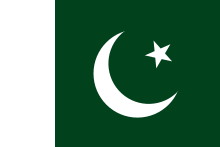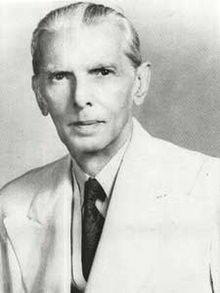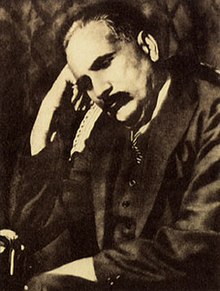
Back قومية باكستانية Arabic পাকিস্তানি জাতীয়তাবাদ Bengali/Bangla Nacionalismo pakistaní Spanish Nationalisme pakistanais French Nacionalismo paquistaní Galician ਪਾਕਿਸਤਾਨੀ ਰਾਸ਼ਟਰਵਾਦ Punjabi پاکستانی قوم پرستی PNB Пакистанский национализм Russian Pakistani nationalism SIMPLE پاکستانی قومیت Urdu
| Part of a series on |
| Nationalism |
|---|




Pakistani nationalism refers to the political, cultural, linguistic, historical, religious and geographical expression of patriotism by the people of Pakistan, of pride in the history, heritage and identity of Pakistan, and visions for its future.
Pakistani nationalism is religious and Islamic nationalism[2] in nature of being the nationalism of the religion, culture, traditions, languages and historical region that make up Pakistan, inhabited by mostly Muslims. The culture, languages, literature, history of the region along with influence of Islam was the basis of Pakistani nationalist narrative. It is also a militarist nationalism in that it often involves glorification of the military.[3][1]
From a political point of view and in the years leading up to the independence of Pakistan, the particular political and ideological foundations for the actions of the Muslim League can be called a Pakistani nationalist ideology. It is a singular combination of religious, cultural, nationalist and philosophical elements.
- ^ a b Maria Rashid (2020). Dying to Serve: Militarism, Affect, and the Politics of Sacrifice in the Pakistan Army. Stanford University Press. ISBN 9781503611993.
- ^ Binder, Leonard (1957). "Pakistan and Modern Islamic-Nationalist Theory". Middle East Journal. 11 (4): 382–396. ISSN 0026-3141.
- ^ Craig Bexter (2004). Pakistan_on_the_Brink. Lexington Books. p. 175. ISBN 9780739104989.